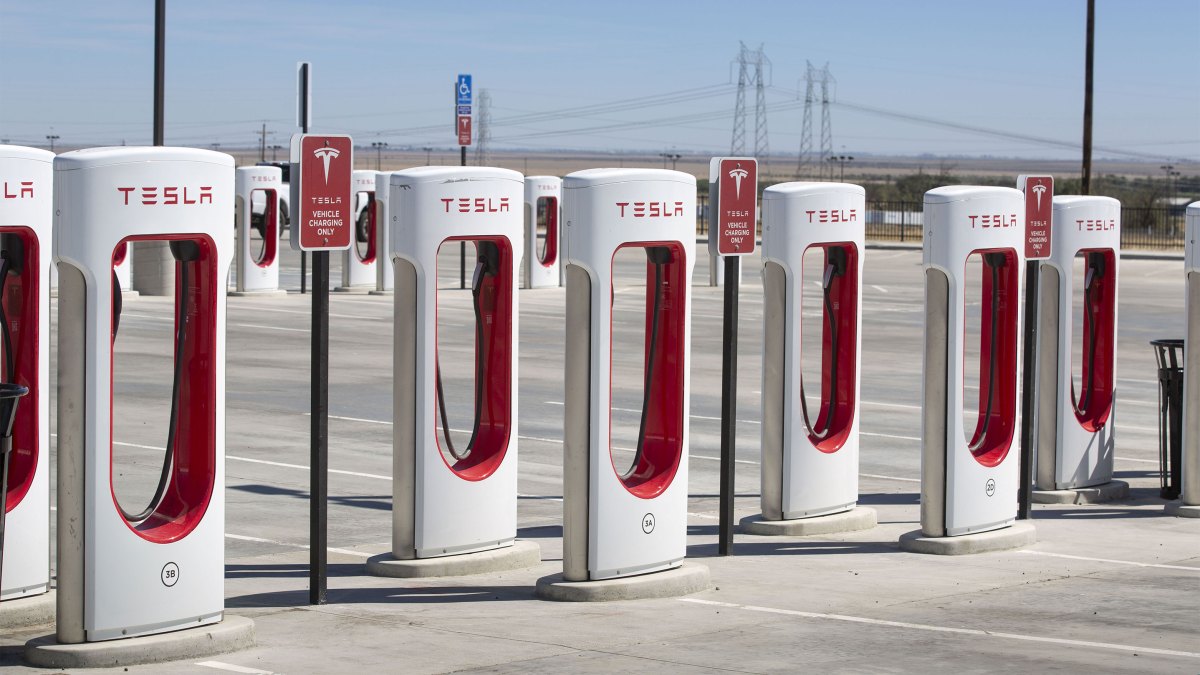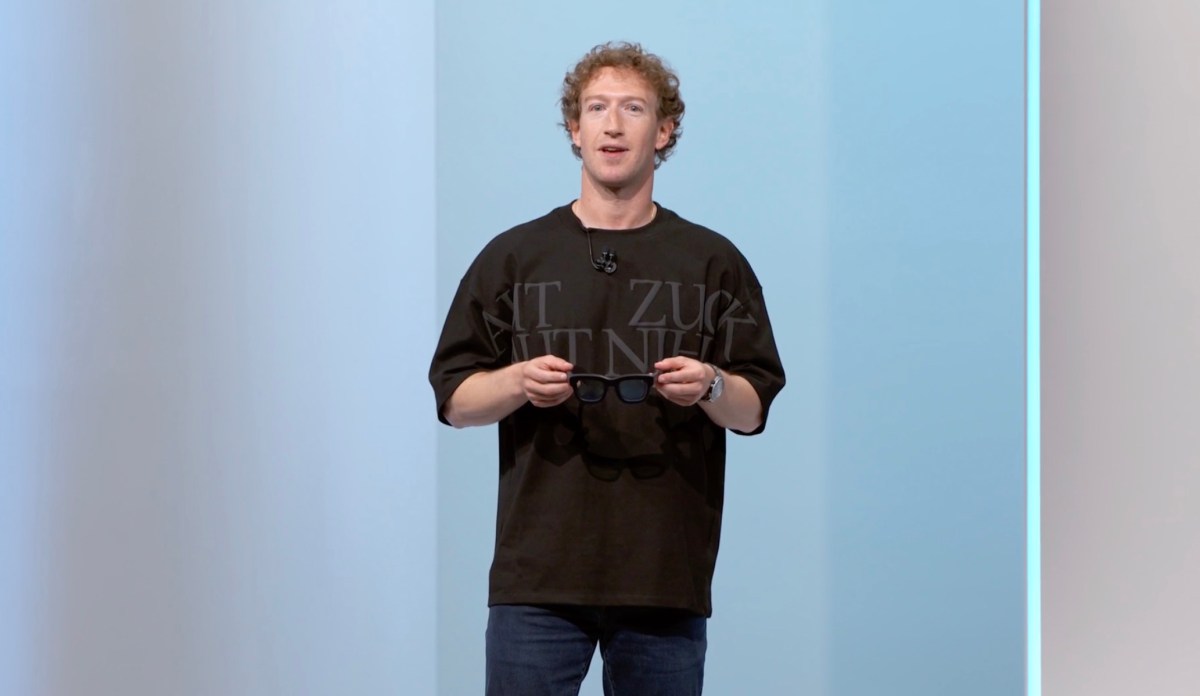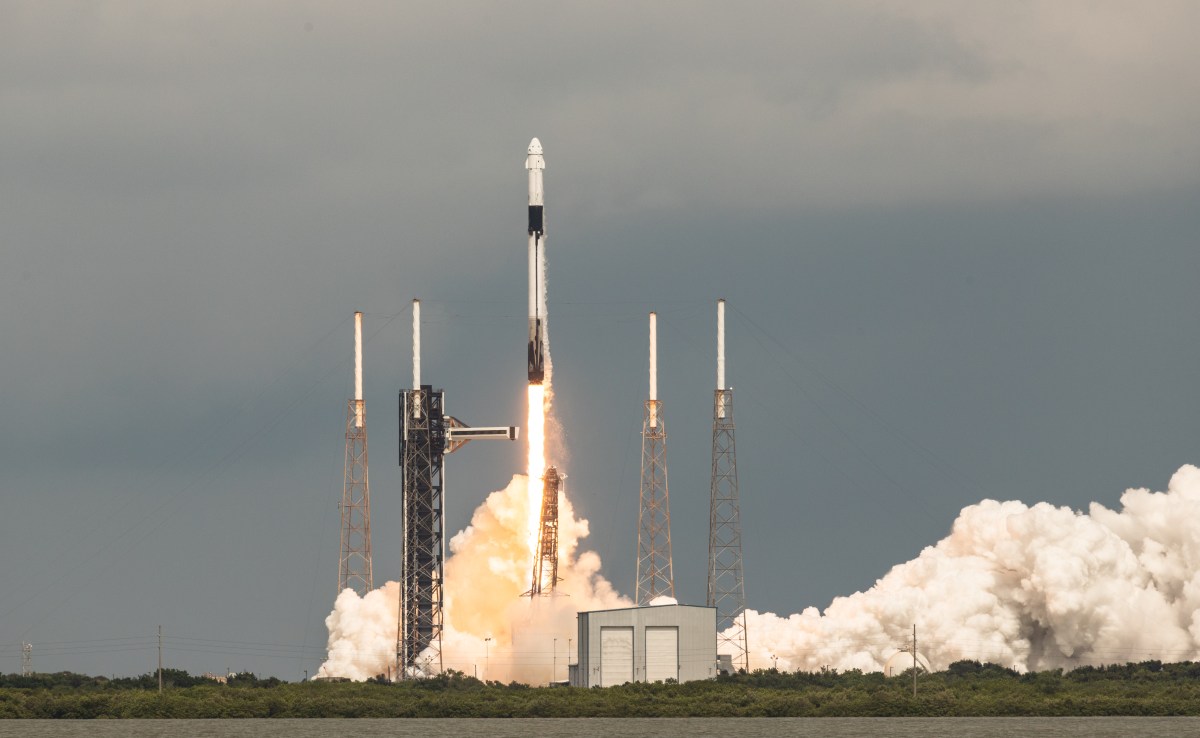President Donald Trump is trying to halt the flow of funding for EV charging infrastructure from two programs that Tesla has benefitted from — the latest example of how Elon Musk’s political interests seem to be at odds with his car company’s goal of advancing sustainable energy.
It’s not a given that Trump’s gambit will succeed. But if it does, Tesla could be cut off from two sources of funding that the automaker has tapped the past two years to build out its market-leading EV charging network.
In one of the myriad executive orders Trump signed on the first day of his second term, he declared that “[a]ll agencies shall immediately pause the disbursement of funds” from programs created by the Inflation Reduction Act and Bipartisan Infrastructure Law. He specifically calls out stopping funding for EV charging stations that’s been made available through the National Electric Vehicle Infrastructure (NEVI) Formula Program and the Charging and Fueling Infrastructure (CFI) grant program.
Those agencies are supposed to submit a review of “processes, policies, and programs for issuing grants, loans, contracts, or any other financial disbursements” within 90 days of the date of this order, all agency heads shall submit a report to the Office of Management and Budget (OMB) and the National Economic Council (NEC). The order also states that agencies cannot disburse more funds unless the “Director of OMB and Assistant to the President for Economic Policy have determined that such disbursements are consistent with any review recommendations they have chosen to adopt.”
Musk has long claimed that Tesla’s mission is “accelerating the transition to sustainable energy.” But he is now officially working with the second Trump administration, which took big swings at sustainable energy on its first day. Trump has already signed orders halting federal leases for offshore wind development, pulling the United States out of the Paris climate agreement, and is trying to reverse other Biden administration EV policies.
Tesla was recently part of a group that won a $100 million award from the CFI program to build out charging infrastructure for heavy duty electric trucks across Illinois, as TechCrunch first reported last week. The company was hoping to secure around $40 million from the group’s original funding request of $126 million. Tesla has also repeatedly sought around $100 million in CFI funding to build a truck-charging corridor between northern California and southern Texas, but that application has been passed over multiple times.
Tesla’s CFI award in Illinois is a small portion of the nearly $2 billion the Department of Transportation has allocated over the last two years. Tesla has won a much greater share of grants from the NEVI program — which doles out smaller amounts of money to states, which, in turn, use those funds to offer grants to build charging infrastructure. Tesla had won around 13% of all NEVI awards by the middle of 2024, and was using those millions to further build out its Supercharger network, which is now open to almost all competing EVs.
Trump could slow or stop the flow of future spending from these programs, according to Martin Lockman, a fellow at Columbia Law School’s Sabin Center for Climate Change Law. He might especially be able to do so if his administration is successful in its promised legal fight over the Impoundment Control Act, which limits the president’s ability to stop Congress from spending money that’s been appropriated.
“There’s a lot of wiggle room here, and the Trump administration will certainly do everything that it can to delay spending under these bills,” he said.
It is not clear that Trump can legally stop the funding of awards that are already under contract, though.
“People who have contracts today have rights under those contracts, and the President can’t take them away,” he said.
But, Lockman cautioned, if agencies feel enough pressure from Trump, they could violate the terms of those contracts — and potentially the laws that established the funding programs in the first place — and refuse to give out the money. In that situation, the companies, state and local agencies, or other entities who won awards from NEVI or CFI would have to fight to get them fulfilled.
“If the new administration wants to make people fight for their contracts in court, that would certainly be a huge barrier to building EV infrastructure,” he said.




